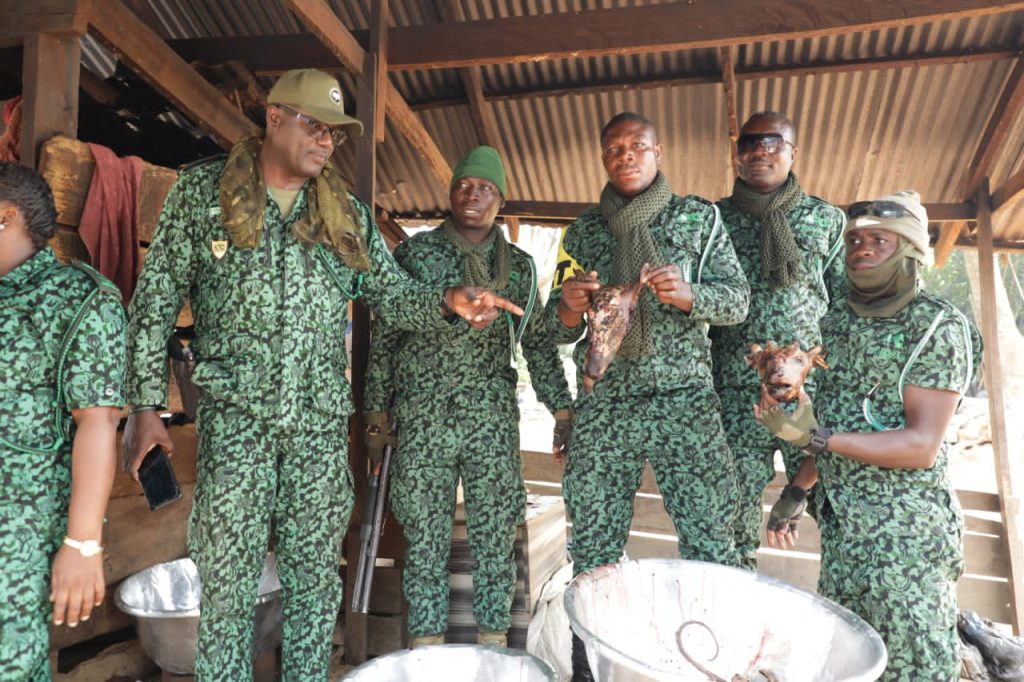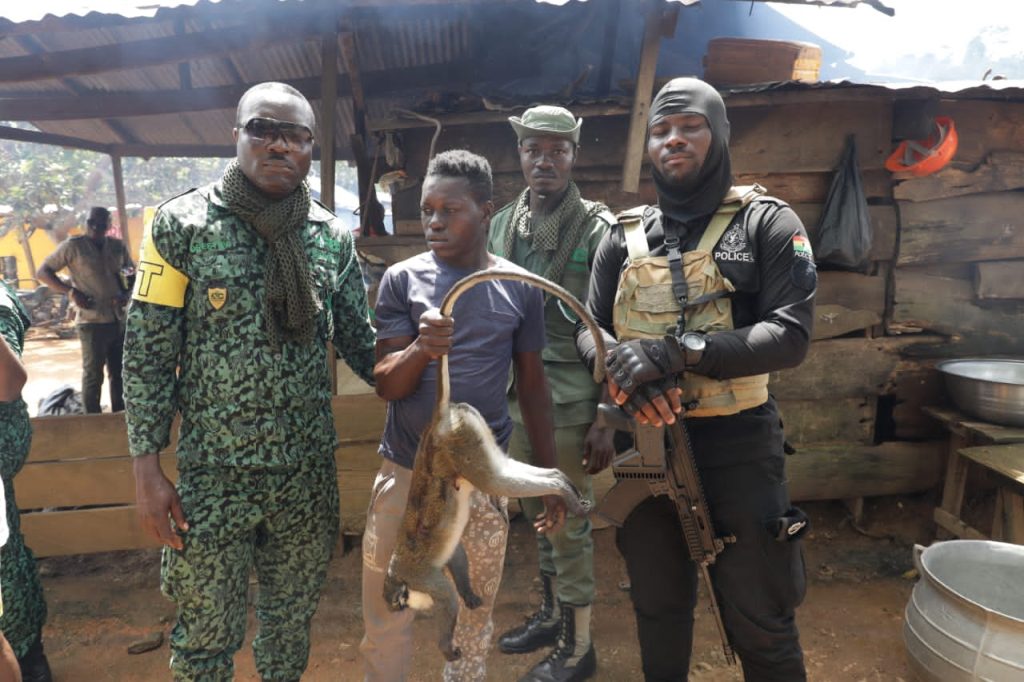The Wildlife Division (WD) of the Forestry Commission has undertaken two separate Close Season Monitoring exercises at the Anyinam to Nkawkaw stretch of the Accra to Kumasi Highway, Eastern Region ; and on the Mankessim Highway in the Central Region.
The combined team for the two-day exercise was made up of the Division’s Operations and Public Relations Units; the WD Eastern Regional Office; WD Winneba Office; the WD Rapid Response Team as well as the Ghana Police Service in both regions.
The purpose of the operation was to inspect and ascertain the level of adherence to the Close Season ban which is from August 1 to December 1 each year; further deepen and sensitise hunters and traders about the Season; and arrest and confiscate venison of wild animals found on recalcitrant traders to enforce compliance.
During the exercise, some bush meat traders were chanced upon selling fresh and smoked grasscutters on the sides of the roads. But a significant number of them had licenses for their operations. A few who fell foul of the law had their wares confiscated and educated on the laws governing wildlife trade as well as on the Close Season.
Similarly, a section of “chop bar” operators along the two highways and within the towns who did not have permits to trade in bush meat were educated and made to acquire licenses to legitimise their operations.
The Commander of the Rapid Response Team, Mr. Samuel Akunnor; Eastern Regional Manager, Mr. Moses Anongura; WD Public Relations Manager, Mrs. Ernestina Anie; Muni-Pomadze Ramsar Site Manager, Ms. Vivian Addo; led the operations .
The Close Season begins on 1st August to 1st December each year ,in conformity with the Wildlife Conservation Regulations 1971, L.I 685.
During this period, it is illegal to hunt, capture and destroy any wild animal except grasscutter,“Akrantie“, which can be done only under a license issued by the Wildlife Division of the Forestry Commission. This is because grasscutters have high reproduction rates and feed mainly on agricultural crops. This minimises crop production which tends to affect food security.
By conserving wildlife, we are ensuring that future generations can enjoy our natural resources and the incredible species that live within it.




